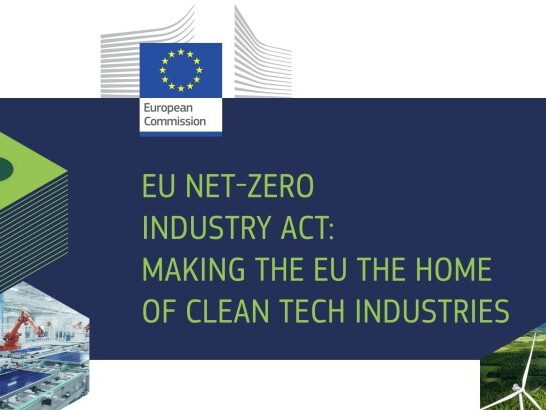The European Parliament has given the green light to the Zero Emissions Industry Act (NZIA), an initiative that seeks to boost industrial capacity for green technologies in Europe. The inclusion of clean fuels for maritime transport in the list of key technologies has been received with enthusiasm by the sector, especially by the European Community Shipowners Association (ECSA), which sees in this law an opportunity to accelerate decarbonization of maritime transport and ensure the supply of sustainable fuels.
25 Apr 2024
The NZIA sets an ambitious target: for clean technology production capacity in the EU to cover at least 40% of deployment needs by 2030. This benchmark includes clean fuels for maritime transport, which means a crucial boost for the availability of alternatives to traditional fossil fuels, such as advanced biofuels and e-fuels.
This measure responds to a historic demand from the European maritime sector, which has called for greater commitment from fuel suppliers to ensure the availability of clean, affordable and safe options. The ECSA has expressed its satisfaction with the NZIA, highlighting that the law creates a favorable framework for investment in the production of clean fuels and contributes to aligning industrial capacity with the decarbonization objectives set out in the FuelEU Maritime Regulation.

Benefits for the maritime sector
The NZIA has the potential to generate significant benefits for the European maritime sector:
- Greater availability of clean fuels: Increasing the production of advanced biofuels and e-fuels will facilitate the sector's transition towards sustainability, offering viable alternatives to fossil fuels.
- Cost reduction: Expanding production capacity can lead to a reduction in the costs of clean fuels, making them more competitive against traditional options.
- Innovation and technological development: The NZIA encourages investment in research and development of new technologies for the production of clean fuels, which will drive innovation in the sector.
- Competitiveness of European maritime transport: The adoption of clean fuels will allow the European maritime sector to comply with increasingly strict environmental regulations and improve its competitiveness in the global market.
Challenges in implementation
The NZIA represents an important step, but also poses challenges that must be addressed to ensure its success:
- ANDproduction scalability: Large-scale production of clean fuels requires significant investments and a stable regulatory framework that encourages innovation and competition.
- Infrastructure development: It is necessary to invest in the adaptation of port infrastructure for the storage and supply of new fuels, such as biofuels and e-fuels.
The NZIA opens a window of opportunity for the decarbonisation of European shipping. The inclusion of clean fuels in the list of key technologies and the EU's commitment to expanding production capacity are positive signs for the sector.
If implementation challenges are properly addressed, the NZIA can contribute to a more sustainable maritime future, with a more competitive, innovative and environmentally friendly sector.

